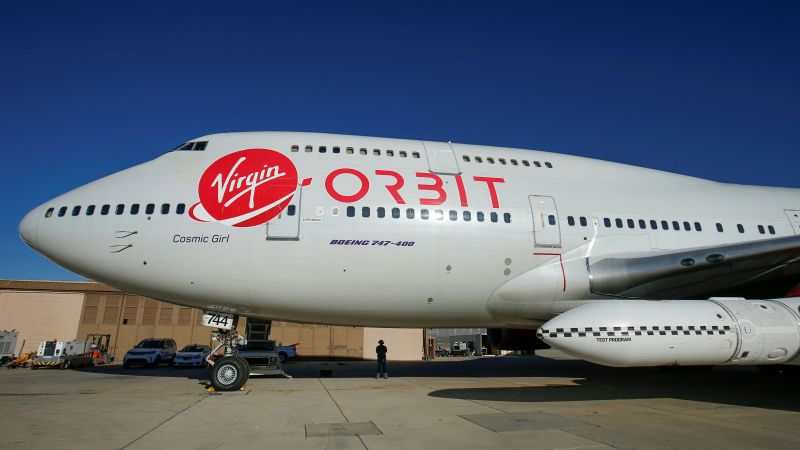Virgin Orbit — the rocket company founded by British billionaire Richard Branson — is laying off the vast majority of its workforce as company leadership struggles to secure additional funding.
About 675 employees will be terminated by April 3, according to a public document filed Thursday, amounting to around 85% of Virgin Orbit’s workforce. The move was made to “reduce expenses in light of the Company’s inability to secure meaningful funding.”
The news was reported earlier by CNBC. Virgin Orbit spokespeople declined to comment beyond the filing.
On March 15, Virgin Orbit CEO Dan Hart had told nearly all of the company’s staff to cease operations, placing them on a week-long furlough as the rocket company worked to secure additional funding.
The public document filed Thursday stated that the company will incur about $15 million in charges related to the decision to cease operations, including “$8.8 million in severance payments and employee benefits costs, and $ 6.5 million in other costs primarily related to outplacement services and WARN Act exposure.”
The WARN Act is a US law that requires corporations to provide employees with advance notice 60 day prior to layoffs.
The company also sold a $10.9 million convertible note — a type of short-term debt — to Virgin Orbit Holdings, Inc., which is wholly owned by Branson’s The Virgin Group.
Virgin Orbit was founded in 2017 after spinning off from its sister company, Virgin Galactic, which is focused on using supersonic planes to vault high-paying tourists on joy rides to the edge of space. Virgin Orbit, on the other hand, has been developing an air-launched rocket, dubbed LauncherOne, for hauling small satellites to orbit.
The company was an early leader among dozens of startups vying to build lightweight rockets for launching smallsats. Virgin Orbit’s LauncherOne rocket reached orbit for the first time in January 2021, earlier than most of its competitors and after only one failed attempt. It then completed three more successful missions out of California.
But in January, the company attempted its first rocket launch from the United Kingdom. That mission ended in failure.
An investigation into that mission “is nearly complete and our next production rocket with the needed modification incorporated is in final stages of integration and test,” a Virgin Orbit spokesperson said in a March 15 statement.
Virgin Orbit announced it was going public — via a reverse merger agreement called a SPAC — in the fall of 2021. In its latest quarterly financial filing, posted in November, the company reported negative cash flow to the tune of $50 million.
The company’s stock price was down 16% during trading hours Thursday, and sunk another 40% during after-hours trading. Shares were valued at around 19 cents as of Thursday evening.
Over the past few months, the company had been receiving additional financial backing from Branson’s family office, called Virgin Group, according to public filings.
Read the full article here










